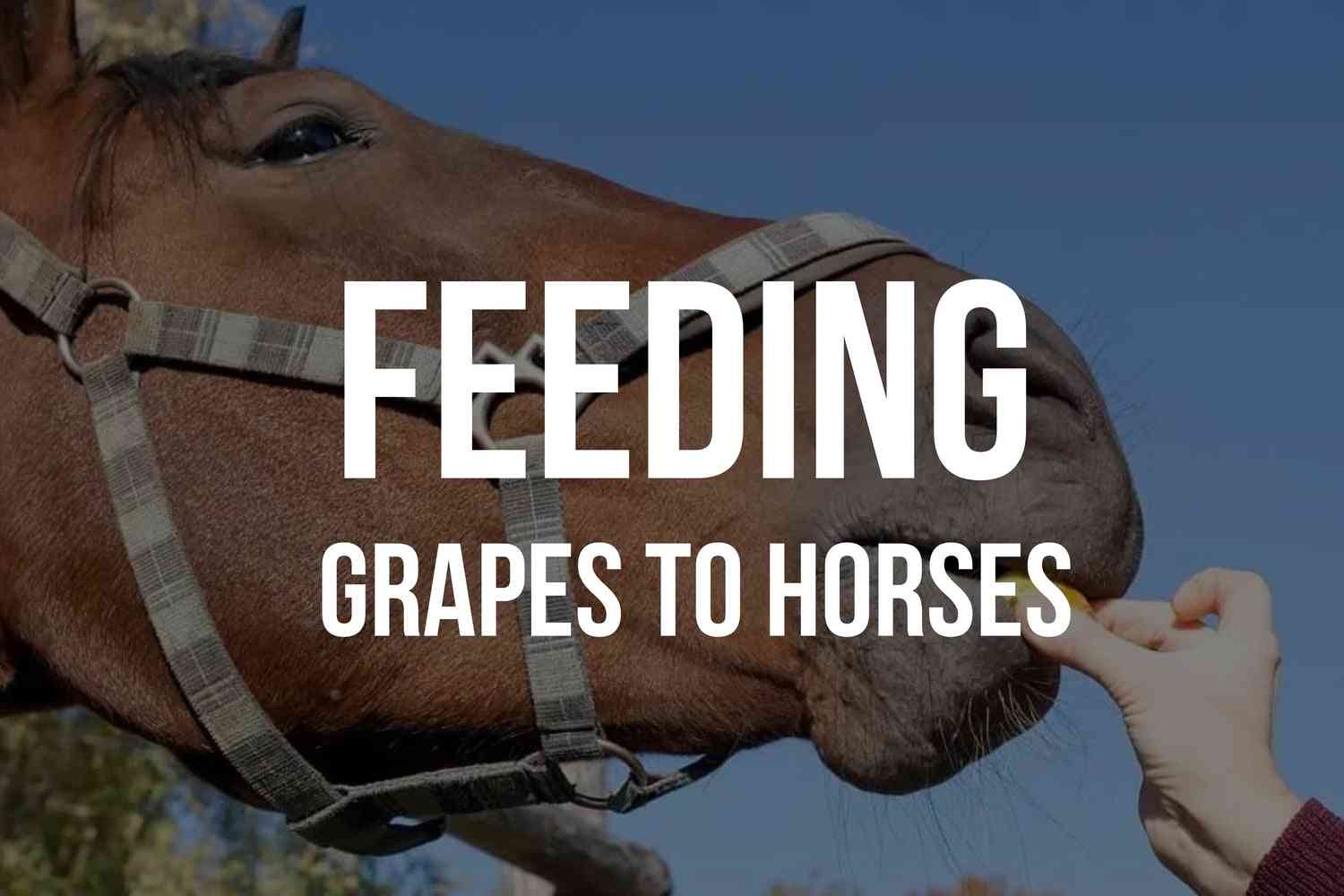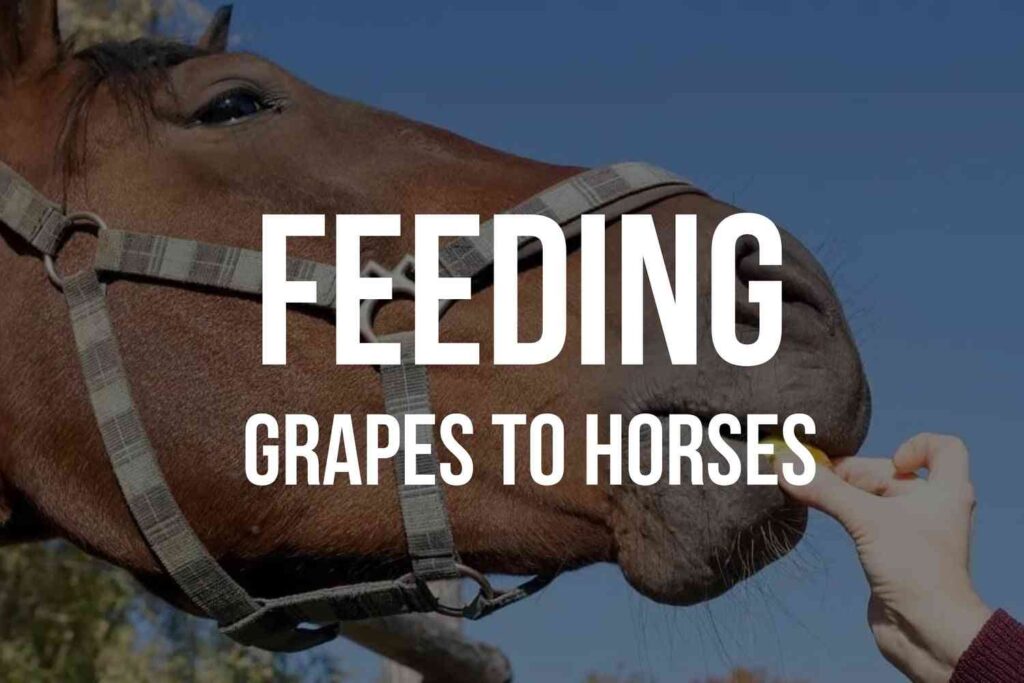- Understanding the dietary needs of horses is crucial to their health.
- Grapes can be a tasty treat for horses, but knowing the right amount is key.
- Overfeeding grapes can lead to health issues in horses.
- Recommended grape portions and the risks of exceeding them.
- Tips for safely incorporating grapes into your horse’s diet.
- The importance of monitoring your horse after introducing new treats.
- >> READ MORE:
- Can Horses Eat Grapes? – All Important Things You Should Know
- Discover the Truth: Can Horses Safely Indulge in Grape Leaves?
Contents
Understanding a Horse’s Diet and the Role of Grapes
When it comes to horses, providing a balanced diet tuned to their intricate digestive systems is vital for maintaining their overall health and well-being. Typically, a horse’s diet should consist primarily of hay or pasture grass, with supplemental grains and treats offered in moderation. So, how many grapes can a horse eat, and where do these sweet fruits fit into the equine diet?

First and foremost, it’s essential to recognize that every horse is an individual, with unique nutritional requirements based on factors such as age, weight, activity level, and overall health. As with any treat, grapes should be given sparingly, ensuring they do not disrupt the horse’s primary dietary intake.
Discovering the Sweet Spot: How Many Grapes is Too Many?
It’s a common question among equestrians: How many grapes can a horse safely consume? While grapes can undoubtedly be a delightful treat for these majestic animals, moderation is the name of the game. A reasonable portion might be a small handful of grapes, which could be around 8-10 grapes for a substantial-sized horse. This should be considered a once-in-a-while snack rather than a daily indulgence.
The joy of sharing a treat like grapes with your horse can strengthen your bond, but always stay attuned to the quantity. Feeding excessive amounts can lead to digestive disturbances or contribute to obesity, especially with the high sugar content found in grapes.
The Risks of Grape Overindulgence in Horses
While equine enthusiasts often seek the perfect quantity of grapes to enhance their horse’s diet, it’s paramount to address the risks associated with overfeeding. Grapes, despite being natural and delicious, pack a considerable amount of sugar. Too many grapes could lead to weight gain or potentially complicate conditions like insulin resistance or laminitis in horses, which are metabolic disorders with severe health consequences.

Moreover, some reports suggest a possible link between grape consumption and renal failure in dogs, inducing a cautious approach when introducing grapes to other animals’ diets, including horses. Thus, equine health specialists commonly recommend a conservative approach when considering the quantity of grapes a horse can eat.
Integrating Grapes into Your Horse’s Diet: Best Practices
To safely incorporate grapes into your horse’s diet, consider the following tips:
– Begin with a minimal quantity: Present your horse with one or two grapes to start, and observe their reaction to this novel treat.
– Monitor for any adverse effects: After sampling grapes, keep an eye on your horse for signs of digestive discomfort or unusual behavior.
– Ensure a balanced diet: Grapes or any treats should never replace a horse’s primary food source. Always ensure that high-quality forage and grain, if necessary, form the basis of your horse’s diet.
– Regular health checks: Routine veterinary examinations will help you determine if treats like grapes are suitable for your horse’s lifestyle and diet plan.
Observing Your Horse Post-Treat Introduction
Upon adding grapes or any new treat to your horse’s regimen, attentiveness is critical. The beauty of treating horses lies not only in the act but also in observing and understanding their responses. Monitoring your horse following the introduction of grapes helps ensure they are tolerated well and do not disrupt the animal’s digestive harmony. Keep an eye out for any changes in stool consistency, signs of colic, or a decrease in regular appetite, which may signal a negative reaction to the treat.
In summary, while grapes can be a healthy and enjoyable treat for your horse, they must be dispensed in the correct quantity considering the individual horse’s dietary needs. Finding the right balance when asking how many grapes a horse can eat ensures that you can ‘Discover the Joy: Determining the Perfect Quantity of Grapes for Your Horse to Safely Enjoy’ without compromising their health. By introducing grapes carefully and in moderation, you can share the pleasure of these succulent fruits with your equine companion, while maintaining their robust health.

